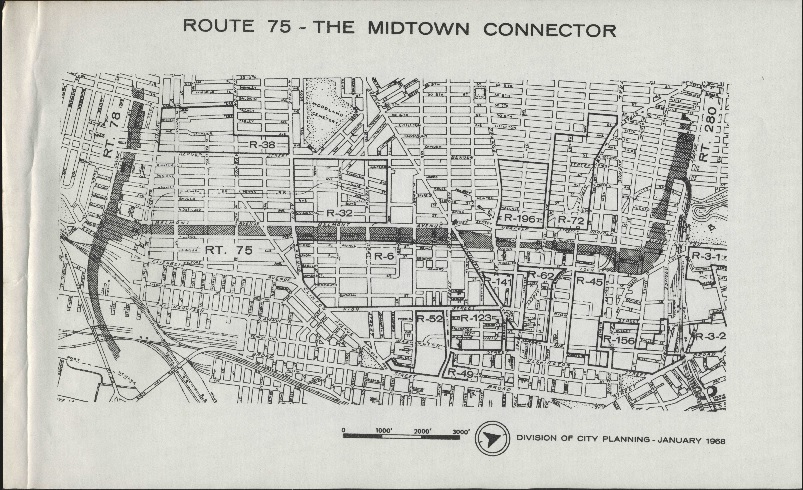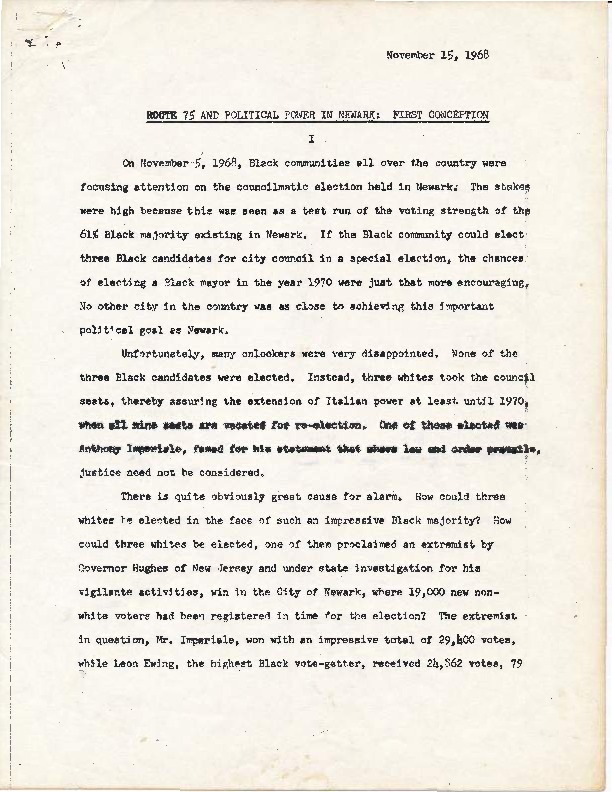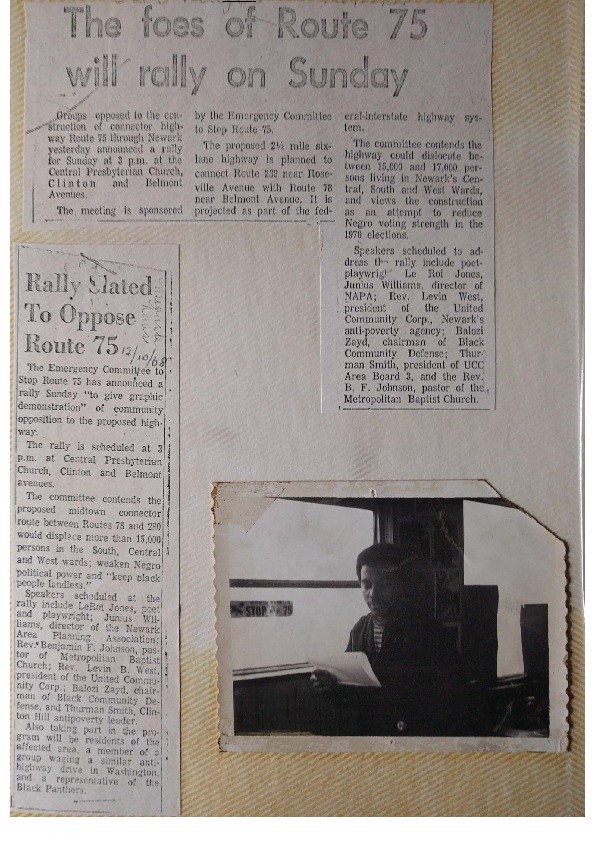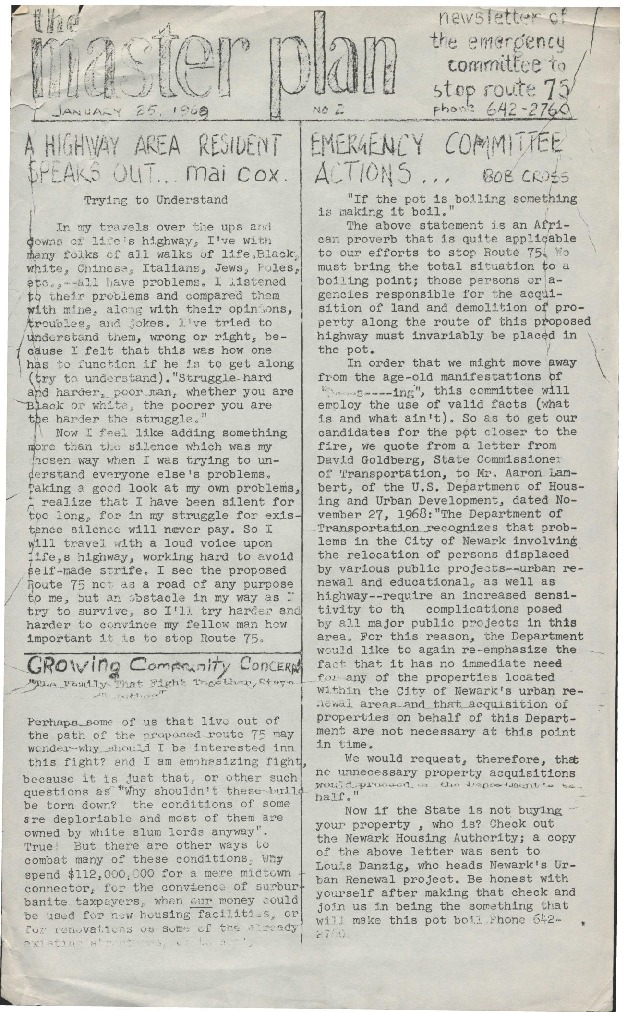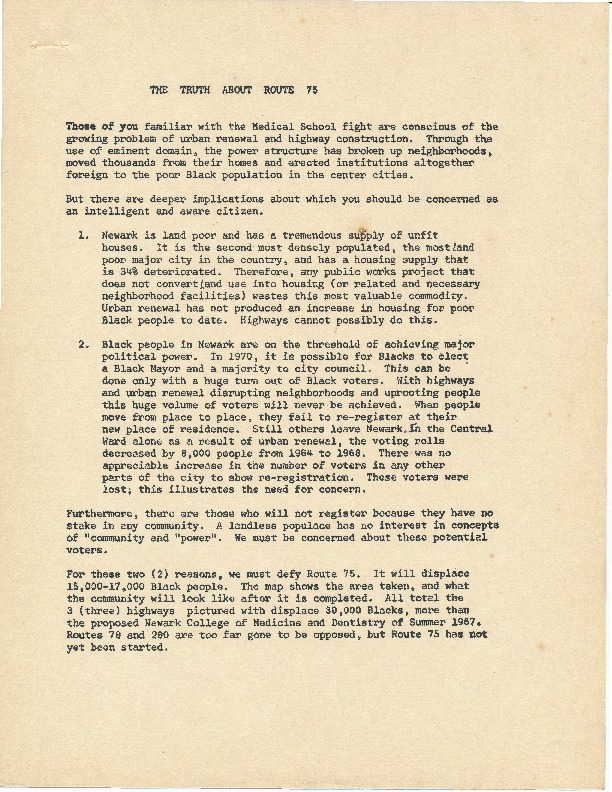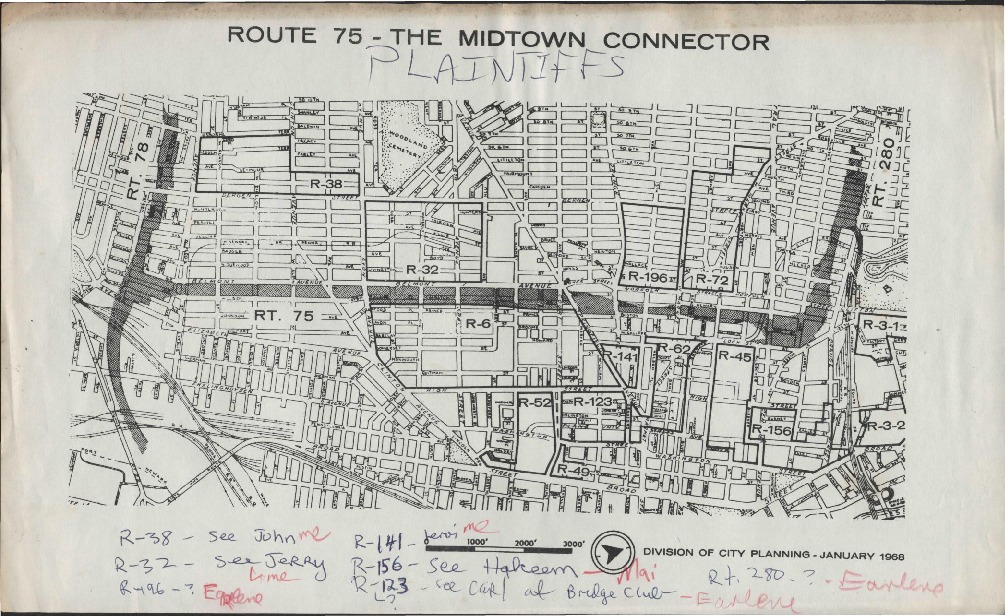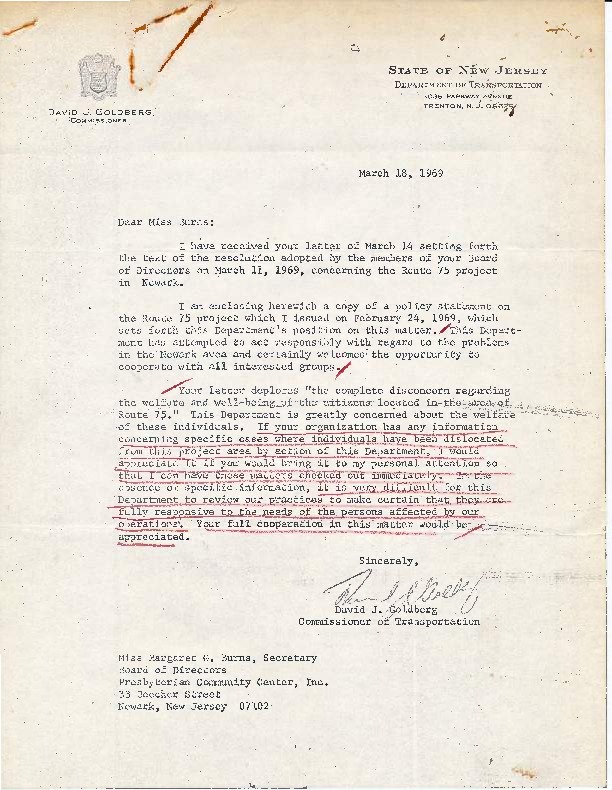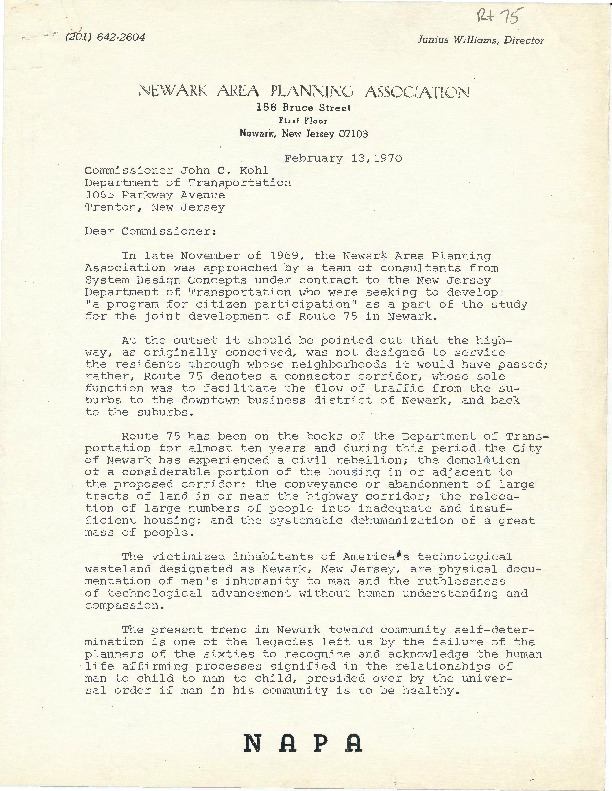Route 75
“By 1969, there was one more urban clearance impediment in the way of realizing the goal of electoral black power in Newark. Route 75 was an eight lane highway planned to run North to South directly across the middle of Newark, connecting Routes 280 and 78, which had already ripped the heart out of the North and South Wards, respectively. Route 75 would cut the Central Ward in half, and displace thousands more black and brown people. After the Medical School victory in the negotiations, some people went to sleep, but we didn’t.
I felt like we had to go to Trenton, to challenge the highway on the enemy’s turf. I made a call to the Department of Transportation, and to my surprise got to speak to the Commissioner, David Goldberg, or someone close to being the Commissioner. He had obviously heard about me, in the context of the medical school fight, and he heard we were beating the drum, which grew steadily in volume and tempo to stop the highway. He didn’t say so, but he was scared this thing might tip off another riot. So we agreed to meet. I told him I would bring a few people to Trenton at the agreed upon date and time.
And I did bring a few people. I got one of our white minister friends from the Ecumenical Ministry to rent us a bus. On it were black and white ministers, members of the NAACP, Welfare Rights mamas, and the hard corps of the Newark Area Planning Association (NAPA) Family. And we invited the Black Panthers for good measure.
There was no real chapter of the Black Panthers in Newark, although Newark men and women were in the Jersey City Chapter. I talked to Capt. Carl and he sent some of his guys, with their black outfits and black tams, looking very much the way I wanted them to look. This was my first time (and as it would turn out my only time) working with the Panthers. I’m glad it was on this occasion.
Our bus drove up at the Man’s office, and we were shown to the conference room. Somebody said, ‘we weren’t expecting quite this many,’ with an apprehensive little smile on a cute white face. I said, ‘the people wanted to be heard, and so here we are.’ The conference room available was one that could seat us all. In came the Commissioner, we shook hands and began the conversation. But there were quite a few voices asking the questions, telling him what we thought, telling him what would happen if they brought that highway through our neighborhood. ‘If you think 1967 was bad….you ain’t seen nothing yet,’ was the general scope of the message. At some point, somebody locked the door, and so you might say this was a ‘Closed Door High Level Meeting.’
I remember seeing Earlene and some of the Panthers standing on the conference room table. Most of the people were on their feet the entire time, cheering on the more aggressive. I just shut up and let them talk to the man. Some of those people scared me, so I know Goldberg was scared. To this day, I don’t know why he didn’t call the State Police, who I know would have waded through that crowd like General Sherman rode through Georgia. But the Commissioner and his staff were stunned and eventually just sat there in a daze. And I knew we had to stop it because it was on the way to getting out of hand. So I stood up, thanked the Commissioner, urged him to reconsider Route 75, and we all left…some people slower than others, still selling wolf tickets going out the door. Somebody had called the State Police. They were outside, but both sides were cool. We got on the bus and celebrated our presumed victory all the way home!
Within one or two weeks, someone called on behalf of the Commissioner. He said, ‘We really don’t need that highway after all!’ There was joy in NAPA land! Can you imagine knocking off a highway with only one show of strength? We never filed a suit…didn’t get to the legal piece at all. We became one of the few groups in the United States at that time to be able to claim a victory over a highway, wiping if off the books. And we did it in coalition style.” -Junius Williams, Head of the Newark Area Planning Association

Flyer for a rally to be held on December 15, 1968 to protest the construction of the proposed Route 75 highway. Speakers at the event included LeRoi Jones (Amiri Baraka), Thurmond Smith, Junius Williams, Rev. B.F. Johnson, Rev. Levin West and Balozi Zayd. Route 75, an eight lane highway planned to run North to South, would have cut the Central Ward in half and displaced thousands of Black and Puerto Rican residents. — Credit: Junius Williams Collection
Explore The Archives
